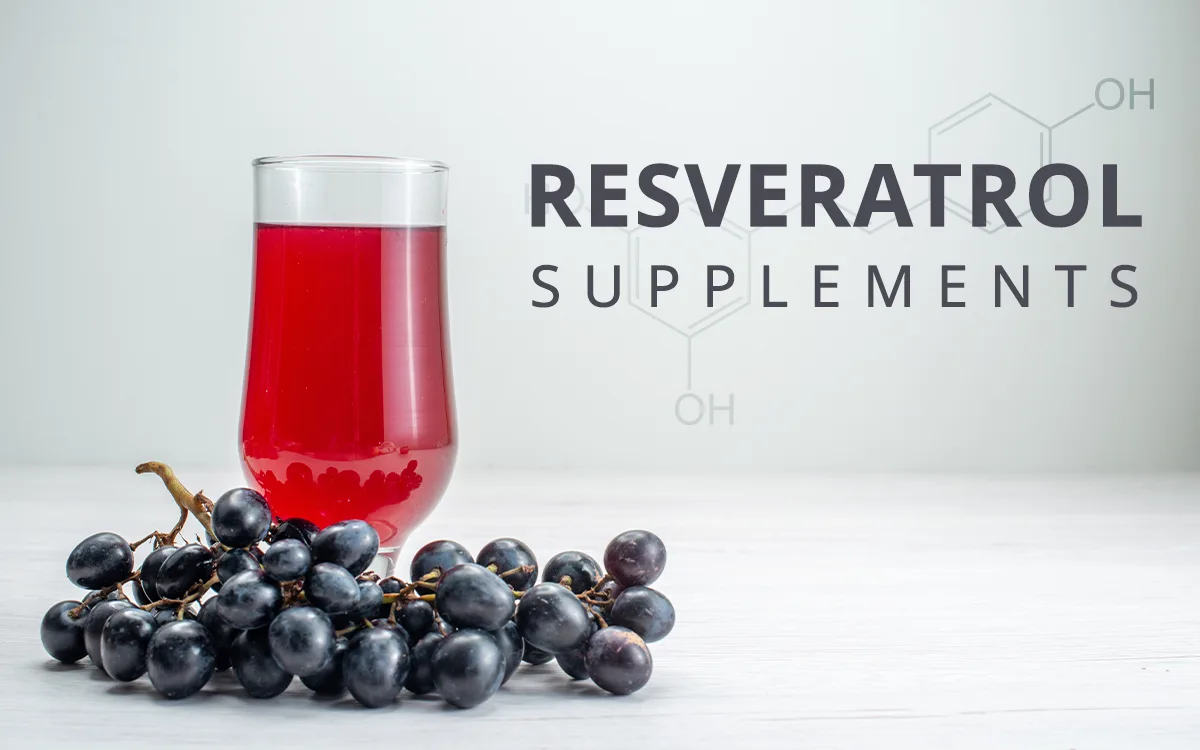Resveratrol is a natural compound found in the skins and seeds of grapes, especially red grapes, and in small amounts in foods like berries and peanuts. You may have heard about it being present in red wine, which is where it gained a lot of attention. But what exactly can it do for your body? And is it worth considering resveratrol supplements for daily wellness?
Let us break down what resveratrol really is, how it works in your body, and what researches have shown so far about its potential health benefits.
What is resveratrol?
Resveratrol is a type of plant compound known as a polyphenol. It is mostly found in red wine because the winemaking process includes fermentation with grape skins, where most of the resveratrol is concentrated. Other sources include Japanese knotweed, a plant often used in supplements for its high amount of resveratrol.
This compound is known for its antioxidant properties, which means it may help the body manage oxidative stress—a condition where unstable molecules (free radicals) damage cells over time. Oxidative stress has been linked to many health issues and discomforts that come with aging and daily stress.
How does resveratrol work in the body?
Resveratrol interacts with your cells in several ways. Studies have shown that it can influence how cells produce energy, handle stress, and maintain balance. It also interacts with certain proteins in the body that play a role in healthy aging and energy use.
What are the main benefits of resveratrol?
Energy and healthy aging
Some research suggests that resveratrol support your body’s ability to maintain cellular health as you age. By helping your cells stay more balanced under stress, it may support long-term energy and body function. The effects can depend on the amount of resveratrol used.
Help manage oxidative stress
One of the most studied benefits of resveratrol is its role in handling oxidative stress. This type of stress can come from pollution, unhealthy food, or everyday pressures. Since resveratrol has antioxidant properties, it may help the body respond better to this stress and maintain balance at the cellular level.
This can be important for overall wellness, especially as we get older or deal with demanding lifestyles.
Help with digestive health
Resveratrol supports digestive balance by influencing the gut environment. It may help the body maintain a healthy gut barrier. Also, resveratrol’s effects on oxidative stress helps ease occasional digestive discomforts and support daily gut health.
What is the connection between resveratrol and red wine?
People often ask if drinking red wine is enough to get the benefits of resveratrol. The truth is, while red wine does contain resveratrol, the amount of resveratrol per glass is quite small—much lower than what is used in clinical studies.
Most studies have used high doses of resveratrol supplements to explore its effects, which are far more than what a person could get from wine alone. That is why many prefer taking resveratrol supplements for consistent support.
How much resveratrol does your body need?
There is no standard daily dose for resveratrol, but studies have explored a wide range—from 150 mg to more than 1000 mg per day. Some benefits have been seen at lower doses, but higher doses are often used in researches to study potential effects.
If you are thinking about adding resveratrol to your routine, it is a good idea to start with a moderate dose and consult a healthcare provider.
What are resveratrol supplements made from?
Most resveratrol supplements are made from Japanese knotweed or grape skin extract. Some high-quality formulas include pure trans-resveratrol, which is the active form known to be more effective in studies.
Look for clean-label supplements with transparent sourcing and dosing information. A good resveratrol supplement should clearly mention the doses of resveratrol and whether it is standardized for bioavailability.
Final Thoughts
Resveratrol is a powerful compound found naturally in the skins and seeds of red grapes and has caught attention for its potential health benefits. From managing oxidative stress to supporting long-term wellness, studies have shown encouraging results—especially when taken in supplement form and in proper doses.
While red wine does contain resveratrol, it does not provide nearly enough to match the levels used in clinical trials. If you are looking for consistent support, resveratrol supplements may be a smart option to consider as part of your wellness routine.
As with any supplement, be sure to choose a quality product and talk to a health expert to find what works best for your needs.
Checkout This Blog: What Can Black Currant Really Do for Your Health? Let’s Find Out!

